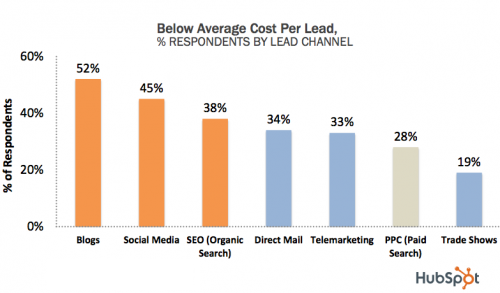
Online marketing.
The very term conjures up a confusing picture of internet speak, and techno geeks.
Online marketing used to be a singular platform to promote a business online.
It has since then evolved into multiple channels, each requiring its own marketing plan and strategy.
Let’s start with the very basics.
The online medium has completely changed the face of traditional business marketing.

According to Hubspot,
The online marketing plan for your business will not look the same as others out there. Each business reaches a different type of audience, and needs to follow a unique strategy to adapt to the individual business needs.
Why the marketing plans may be different, the process of creating them remains the same. There are 5 phases you need to navigate through in order to create an efficient online marketing plan for your business.

To start off, you need to identify the objectives of online marketing for your business, gain clarity regarding your target audience, and discover the uniqueness of your business.
Here are some leading questions to help you discover your business’ need for online marketing.
Online Marketing Objectives
The first step is to identify the goals you want to meet through online marketing.
Some sample online marketing objectives might include:
Your Target Audience
The next step is to identify who your target audience is, so you’ll have better clarity on who you’re trying to reach through online marketing.
Business Specifications
In this step you recognize what your business does, and how it is beneficial to your target audience.
It is essential that the online marketing goals are set right at the beginning, so there’s enough clarity to go forward. It’s also important to double-check if your business really needs online marketing.
You don’t have to do it just because everyone else in the industry is doing it. A deeper look at the questions listed above will help you evaluate if online marketing is essential for your business, and whether it is a feasible undertaking.

At the end of the discovery phase, you will have a clearer picture of what you want to accomplish through marketing your brand/business online.
The next step is to look at the various online marketing streams out there and identify which ones you will be pursuing for your business.
Here’s a list of some of the major online marketing trends, and their benefits.
Search Engine Optimization (SEO)

Search Engine Optimization is probably one of the older online marketing methods that still give a lot of traction today. While search algorithms might have changed, the effect of coming up at the top online search results remains the same.
When your business is one of the first organic search engine results for a particular keyword, it considerably builds up traffic to your website. This also means search engines start recognizing you as an authority for that keyword, and the same credibility is passed on to your website.
All the search engine traffic converts well on your website, and the trust quotient is upped. SEO can be very helpful for and eCommerce site or consultancy where trust is an important factor.
Social Media

Social media has taken the online world by storm and the newer sites like Facebook, Twitter, Pinterest, LinkedIn, Instagram and YouTube are very effective marketing channels for businesses worldwide.
Through social media, you have the ability to interact directly with your audience, and build up the communication channel between your business and potential/existing customers. Social media is also a great way to tap into word of mouth marketing. All it takes is a few raving fans to spread the word about your business. The number of followers can increase exponentially, giving you greater visibility.
Pay Per Click (PPC)

Pay per click marketing is a legitimate, albeit expensive way to get more people to check out your business online. You will have to pay to have your ads displayed either among search engine results, or partner with an ad network such as Google AdSense to display your ads on other website.
PPC marketing is quite effective, so it’s highly recommended if you have the budget for it. You will get a huge influx of visitors to your site that can convert into paying clients. You also gain more visibility as users come across your ads on a variety of sites they visit.
Content Marketing

Content is what makes the world wide web what it is. Content takes on many forms and can be adapted to suit your business plan. From good old written blog articles to the more visual infographics, slideshows and webinars, content marketing covers them all.
Your business stands to gain a lot through content marketing, as it is the backbone for other marketing tactics as well. Effective content marketing will increase your website traffic, enable your business to get found on search engines, and increase your conversion rate.
Email Marketing

More and more businesses prefer email marketing as it adds a personal touch that is often missing in other online marketing channels. To start with, you only need to have a lead magnet — a resource you can give away in exchange for email IDs. Once you’ve built up your mailing list, the possibilities are endless.
You can email the people on your list and get them to visit your website, sign up for your services or even obtain discounts when they buy your products. Email marketing as a whole builds up your website traffic and gets you more conversions and sales.
Now that you know the major online marketing strategies out there, it’s time to identify which strategies you will be incorporating in your business. You can to consider what kind of marketing will jive with your target audience as you try to solve their problems.
For example:
Let’s say your audience consists of technical newbies who need to know how to operate a particular gadget. You can create a video (content marketing) explaining how its done, and share it on Facebook (social media marketing) where most of your target audience is active.
When you find the right balance between what kind of marketing resonates with your audience, and you’re able to provide what they need through those channels, your online marketing statistics will go through the roof.

Once you’ve finalized the different types of marketing you will be implementing for your business, it’s time to map out the action plan for each one.
The action plan for each marketing strategy should answer these basic questions:
For example:
When you consider search engine optimization, there are a list of things that need to be done in answer to the WHAT question — keyword research, on-page optimization, content creation, etc. For each of these tasks, you need to indemnify WHO is in charge — either yourself, a member of your team, or a freelancer you’ve hired.
Each of these tasks need to have deadlines in response to the WHEN question. And the HOW question is answered by subdividing each of these action items into bite-sized tasks.
The best way to go about online marketing is look at the big picture — what you want your end result to look like. Then map out the action items on a monthly, weekly, and daily basis. This makes it easier for you and your team to actually take concrete action and get the online marketing work done.

One of the advantages of online marketing is the ability to measure the results of your marketing efforts. There are a variety of tools that help you tabulate the metrics related to specific online marketing channels.

Google Analytics is a great tool to help you analyze your website traffic and conversion. Most social media networks have in-built and third-party tools to calculate the user engagement. Email marketing providers also provide detailed reports on how your emails fared among its recipients.
Use a variety of tools to analyse the results of your online marketing efforts, and measure them against the goals you set in the first phase. This will help you gauge how effective your marketing strategy is, and help you identify areas where you need to fine tune it.

The final step is one that needs to be ongoing — reviewing and reworking your online marketing plan. Based on your analysis of the reports you’ve collected in the previous phase, you’ll have to tweak your marketing plan to make align well with your business model.
It’s best to have an annual or bi-annual marketing review done, so positive changes can be implemented to result in the best results for your business. As you keep working on your online marketing plan, you’ll see it efficiently evolve to meet your business goals.
We hope this comprehensive article has helped you create your own online marketing plan. If you’d like additional help, we’d love to assist you.
Contact us today!
Get ready to take your business to the next level. Lots of free resources, worksheets and eBooks to help you get started.